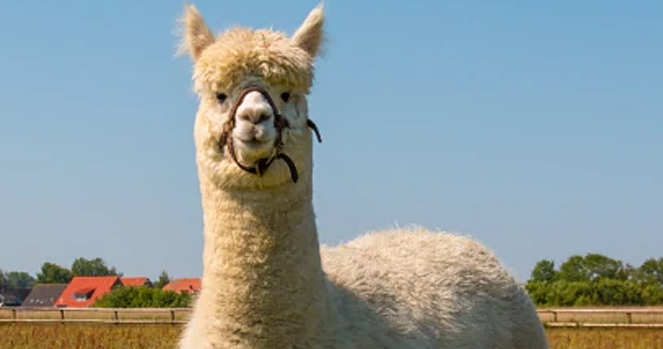Last Updated on July 27, 2023
Welcome to our article on how to put weight on an alpaca. As a responsible alpaca owner, it is crucial to understand the importance of weight management for these beautiful creatures. In this article, we will guide you through the process of assessing your alpaca’s current weight and making necessary adjustments to their diet. We will also discuss the incorporation of supplements and treats, as well as the implementation of a regular exercise routine. Monitoring your alpaca’s weight gain progress is essential, and we will provide tips on troubleshooting common challenges. Lastly, we strongly recommend consulting with a veterinarian for professional guidance throughout this journey. Let’s get started!
Understanding the importance of weight management for alpacas
Proper weight management is crucial for the health and well-being of alpacas. Maintaining a healthy weight ensures that they have enough energy and nutrients to support their daily activities and functions. Here are some key points to understand about weight management for alpacas:
- Alpacas should have a body condition score (BCS) of 3 to 5, with 3 being underweight and 5 being overweight.
- Underweight alpacas may have a weakened immune system, reduced fertility, and decreased milk production.
- Overweight alpacas are at risk of developing health issues such as joint problems and metabolic disorders.
- Regularly monitoring and assessing the alpaca’s weight is essential to identify any weight loss or gain.
By understanding the importance of weight management, alpaca owners can take the necessary steps to ensure their alpacas maintain a healthy weight.
Assessing the current weight of your alpaca
Assessing the current weight of your alpaca is an important step in the process of putting weight on them. It allows you to determine whether your alpaca is underweight, at a healthy weight, or overweight. To assess your alpaca’s weight, you can use a weight tape or a livestock scale. A weight tape is a simple and convenient tool that can be wrapped around your alpaca’s girth to estimate their weight. Alternatively, a livestock scale provides a more accurate measurement but may require more effort to access and use.
When assessing your alpaca’s weight, it is important to consider their breed, age, and overall body condition. Different breeds have different ideal weight ranges, and older alpacas may naturally have a lower weight. Additionally, you should evaluate your alpaca’s body condition by feeling their ribs and assessing the amount of fat cover. This will give you a better understanding of whether your alpaca is underweight, at a healthy weight, or overweight.
Adjusting the alpaca’s diet to promote weight gain
One of the key factors in putting weight on an alpaca is adjusting its diet. Alpacas are herbivores and their diet mainly consists of grass and hay. However, if you want to promote weight gain, you may need to make some changes to their feeding routine.
Firstly, you can increase the amount of hay and grass provided to the alpaca. This will ensure that they have enough food to meet their energy requirements. Additionally, you can consider offering them high-quality alfalfa hay, which is more nutrient-dense and can help with weight gain.
In addition to hay and grass, you can also introduce concentrated feeds into the alpaca’s diet. These feeds are specially formulated to provide the necessary nutrients for weight gain. However, it is important to consult with a veterinarian or an alpaca nutritionist to determine the appropriate type and amount of concentrated feed for your alpaca.
Lastly, it is crucial to ensure that the alpaca has access to clean and fresh water at all times. Water is essential for digestion and overall health, so make sure to regularly check and refill their water source.
5. Incorporating supplements and treats into the alpaca’s feeding routine
When trying to put weight on an alpaca, it can be helpful to incorporate supplements and treats into their feeding routine. These additions can provide extra calories and nutrients that can aid in weight gain. Here are some tips for incorporating supplements and treats:
- Choose high-calorie supplements: Look for supplements that are specifically designed for weight gain in alpacas. These supplements are often high in fat and protein, which can help to increase the alpaca’s calorie intake.
- Introduce treats in moderation: While treats can be a great way to entice the alpaca to eat more, it’s important to introduce them in moderation. Too many treats can lead to digestive issues or an unbalanced diet.
- Consider natural options: Instead of relying solely on commercial supplements and treats, you can also incorporate natural options. For example, you can offer the alpaca small amounts of fruits or vegetables as treats.
- Monitor the alpaca’s response: Keep a close eye on how the alpaca responds to the supplements and treats. If they are not showing any improvement in weight gain or if they are experiencing any negative side effects, it may be necessary to adjust the feeding routine.
6. Implementing a regular exercise routine for the alpaca
Regular exercise is an important aspect of weight management for alpacas. It helps to increase their muscle mass and overall fitness, which can contribute to healthy weight gain. Here are some tips for implementing a regular exercise routine for your alpaca:
- Provide a spacious and safe area for the alpaca to move around freely.
- Encourage the alpaca to engage in natural behaviors such as grazing and walking.
- Take the alpaca for regular walks or allow it to roam in a larger pasture.
- Introduce obstacles or toys in the exercise area to stimulate the alpaca’s curiosity and encourage movement.
- Consider engaging the alpaca in activities such as agility training or obstacle courses.
- Monitor the alpaca’s exercise routine to ensure it is not overexerting itself.
Remember to start slowly and gradually increase the intensity and duration of the exercise routine. It is important to consult with a veterinarian or an experienced alpaca handler to determine the appropriate exercise regimen for your alpaca, taking into consideration its age, health condition, and individual needs.
Monitoring the alpaca’s weight gain progress
Once you have adjusted your alpaca’s diet and implemented a regular exercise routine, it is important to monitor their weight gain progress. This will help you determine if the changes you have made are effective and if any further adjustments need to be made.
One way to monitor your alpaca’s weight gain is by regularly weighing them. You can use a livestock scale or a weight tape specifically designed for alpacas. Weighing them every few weeks will give you a clear picture of their progress.
In addition to weighing, you should also visually assess your alpaca’s body condition. Look for signs of a healthy weight gain, such as a rounded and well-covered body. If you notice any excessive weight loss or gain, it may be necessary to consult with a veterinarian for further guidance.
Remember that weight gain should be gradual and steady. Rapid weight gain can be unhealthy for alpacas and may lead to other health issues. It is important to monitor their progress closely and make any necessary adjustments to ensure their overall well-being.
Consulting with a veterinarian for professional guidance
When it comes to putting weight on an alpaca, it is always a good idea to seek professional guidance from a veterinarian. Veterinarians have the knowledge and expertise to assess the specific needs of your alpaca and provide tailored advice for weight management.
During a consultation with a veterinarian, they will be able to assess the overall health of your alpaca and determine if there are any underlying medical conditions that may be affecting its weight. They can also provide guidance on the appropriate diet and exercise routine for your alpaca’s specific needs.
Additionally, a veterinarian can recommend any necessary supplements or treatments that may be beneficial for weight gain. They can also monitor the progress of your alpaca’s weight gain and make any necessary adjustments to the plan.
By consulting with a veterinarian, you can ensure that you are taking the necessary steps to put weight on your alpaca in a safe and effective manner. Their professional guidance will help you navigate any challenges that may arise and ensure the overall well-being of your alpaca.
Troubleshooting common challenges in putting weight on alpacas
Putting weight on an alpaca can sometimes be a challenging task. Despite your best efforts, there may be certain obstacles that prevent your alpaca from gaining weight. In this section, we will discuss some common challenges that you may encounter and provide troubleshooting tips to overcome them.
1. Digestive issues
One of the main reasons why alpacas struggle to gain weight is digestive issues. These can include problems such as poor digestion, bloating, or diarrhea. To address these issues, it is important to ensure that your alpaca’s diet is well-balanced and easily digestible. Consider incorporating high-quality hay and fiber-rich foods into their diet to promote healthy digestion.
2. Dental problems
Another common challenge is dental problems. Alpacas, like humans, can experience dental issues that make it difficult for them to chew and digest their food properly. Regular dental check-ups and maintenance can help identify and address any dental issues that may be hindering weight gain. Additionally, providing softer foods or soaking their feed in water can make it easier for them to consume and digest.
By addressing these common challenges and implementing the appropriate solutions, you can help your alpaca overcome obstacles and achieve healthy weight gain. Remember to consult with a veterinarian for professional guidance and support throughout the process.
Wrapping it Up: Achieving Healthy Weight Gain for Your Alpaca
After delving into the intricacies of weight management for alpacas, it is evident that maintaining a healthy weight is crucial for their overall well-being. By following the steps outlined in this article, you can ensure that your alpaca is on the right track to achieving optimal weight gain.
Assessing your alpaca’s current weight and adjusting its diet accordingly are fundamental steps in promoting weight gain. Incorporating supplements and treats into its feeding routine can also provide the necessary nutrients for healthy growth.
Furthermore, implementing a regular exercise routine for your alpaca can help build muscle mass and improve its overall fitness. Monitoring its weight gain progress is essential to ensure that the desired results are being achieved.
However, it is important to remember that weight gain in alpacas can sometimes present challenges. In such cases, seeking professional guidance from a veterinarian is highly recommended.
By following these guidelines and addressing any obstacles that may arise, you can successfully put weight on your alpaca and contribute to its long and healthy life.
Learn how to put weight on an alpaca with these expert tips. Improve your alpaca’s health and well-being today!
About The Author

Alison Sowle is the typical tv guru. With a social media evangelist background, she knows how to get her message out there. However, she's also an introvert at heart and loves nothing more than writing for hours on end. She's a passionate creator who takes great joy in learning about new cultures - especially when it comes to beer!

